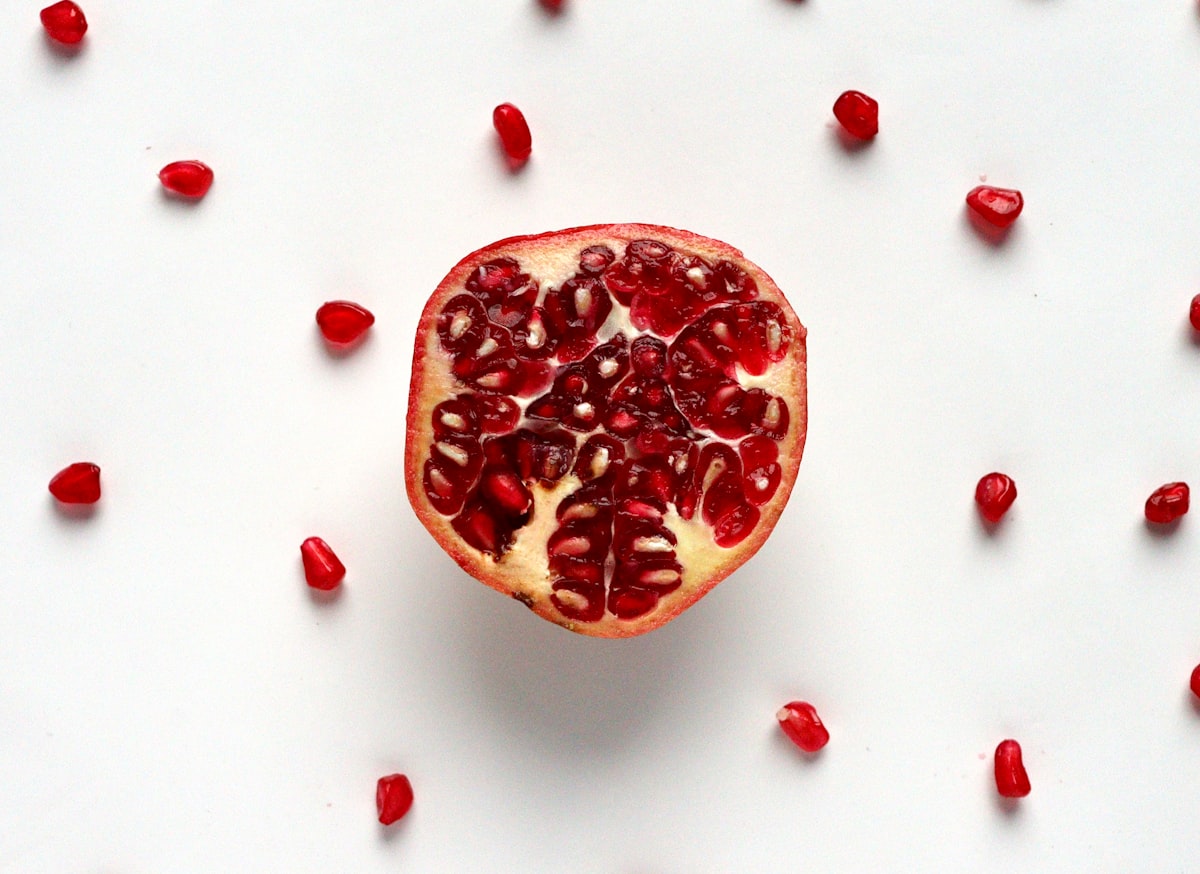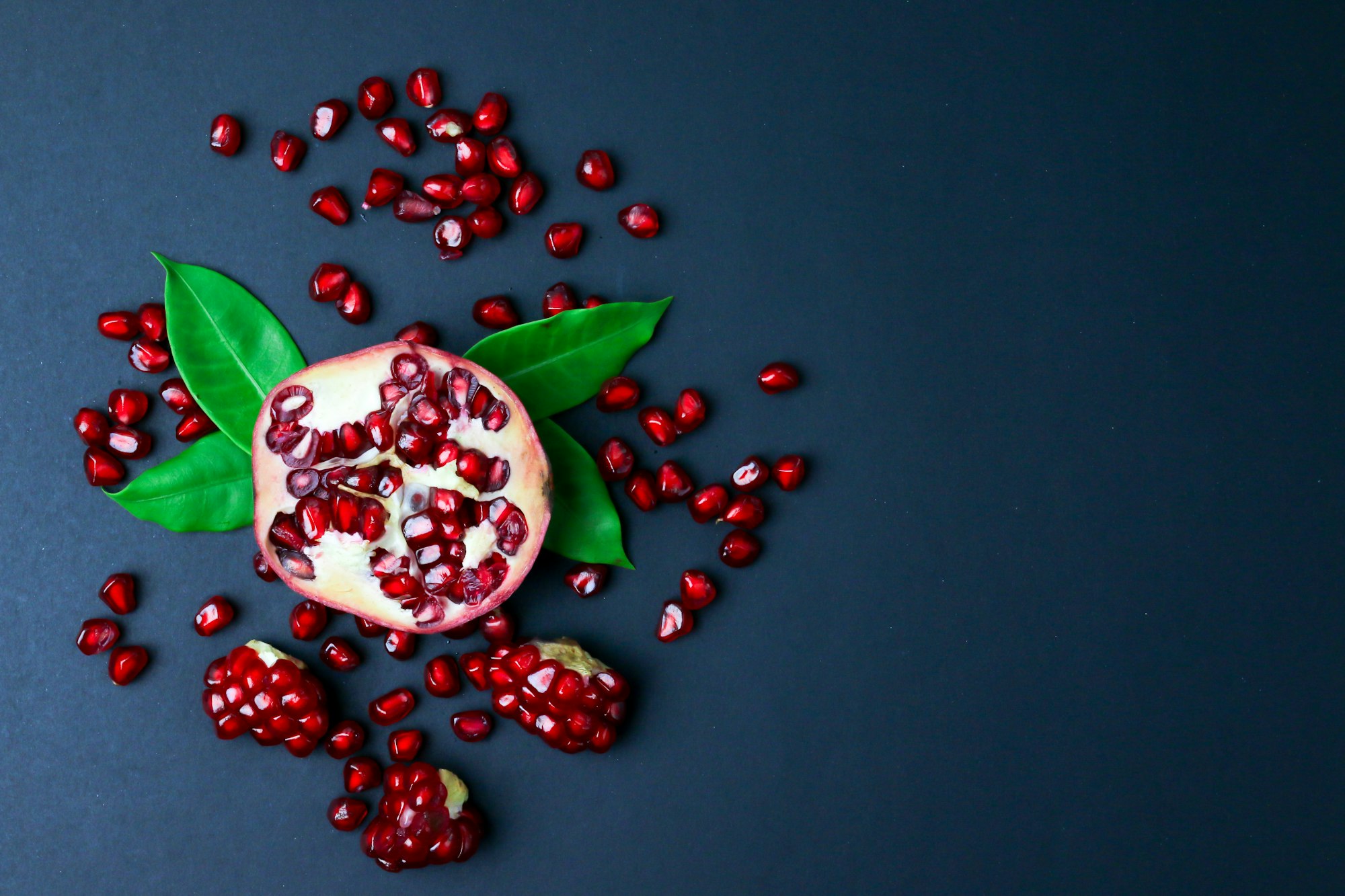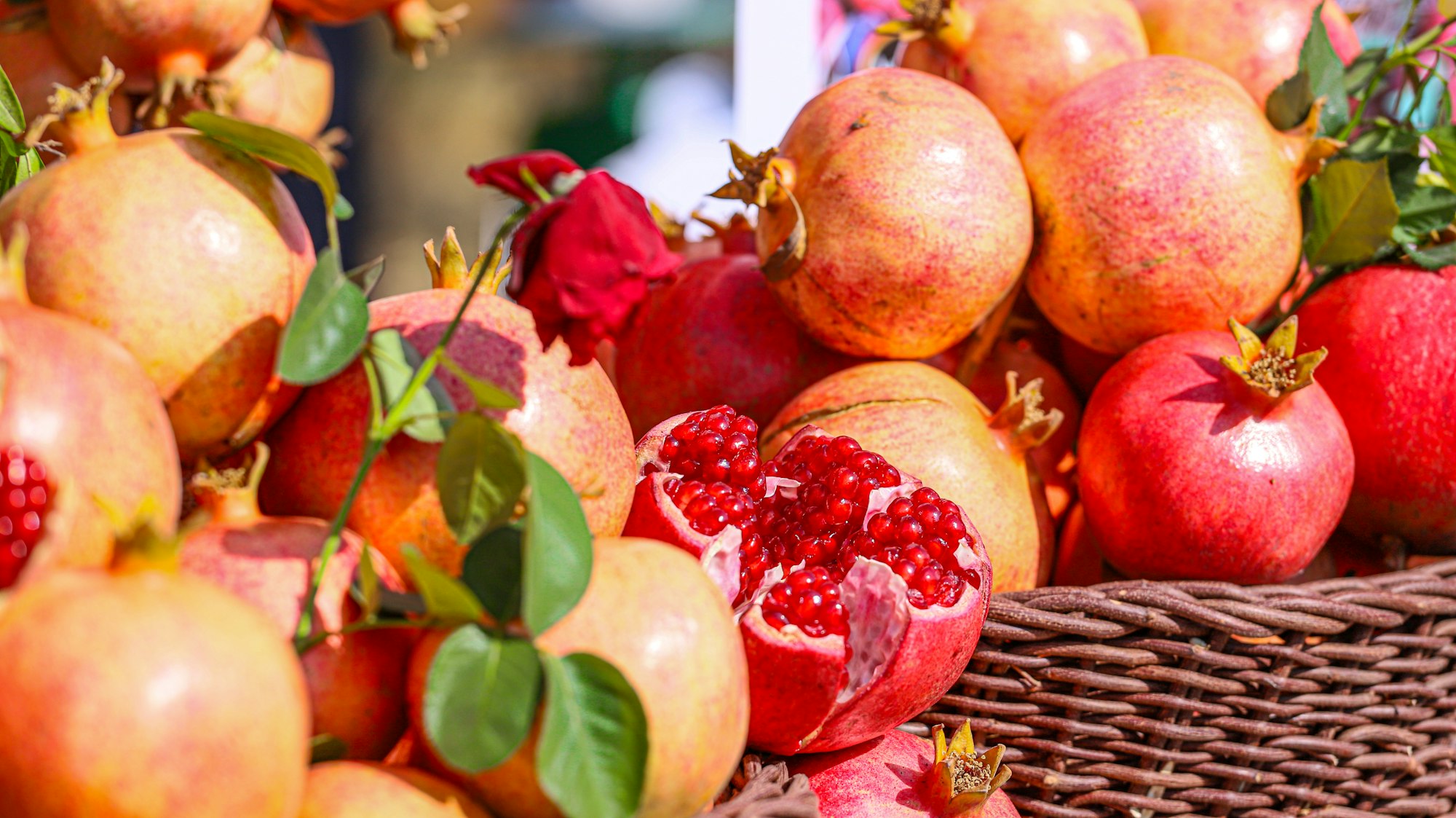Pomegranate & kale salad
This super easy pomegranate and kale salad is a healthy and delicious way to incorporate pomegranate seeds into your diet.

Pomegranate is a super food loaded with antioxidants and it may also have antibacterial and anti fungal properties. Research shows that it may be good for high blood pressure, high cholesterol, oxidative stress and hyperglycemia. Finally, pomegranate anti inflammatory activity in the digestive tract may help to get rid of some types of bacteria such as candida.
Pomegranate & Kale salad
Ingredients:
- 4 cups chopped kale
- 1/2 cup pomegranate seeds
- 1/4 cup crumbled feta cheese
- 1/4 cup chopped walnuts
- 1/4 cup diced red onion (optional)
- 1/4 cup extra-virgin olive oil
- 2 tablespoons balsamic vinegar
- 1 teaspoon Dijon mustard
- Salt and pepper, to taste
Directions:
- In a large bowl, combine kale, pomegranate seeds, feta cheese, walnuts, and red onion.
- In a small bowl, whisk together olive oil, balsamic vinegar, Dijon mustard, and pepper.
- Pour the dressing over the salad and toss to combine.
- Let the salad sit for 5-10 minutes to allow the kale to soften slightly.
- Serve the salad as a side dish or add some protein, such as grilled chicken or tofu, to make it a complete meal.
Nutrition facts
Pomegranate = fibres, potassium, vitamin C & K, magnesium, and calcium, choline (important for liver and brain function).
Kale = fibres, vit A, K, B6 & C, calcium & potassium
Walnut = healthy fats, fibres, potassium, magnesium and calcium
Tips
- If you’re trying to cut your consumption of refine sugar, try pomegranate, the fruit since it’s a sweet healthy option.
- If you buy pomegranate juice available in stores, make sure it is unsweetened.
Sprinkle some on your salads, hummus & babaganoush

How to peel a pomegranate? It's not that hard!
- Cut off the crown with a sharp knife.
- Make shallow cuts in the skin of the pomegranate along each of the ridges.
- Break open the pomegranate using your fingers, the sections should come apart easily.
- Over a bowl remove the seeds holding one section of the pomegranate upside down with the seeds facing down, the seeds should fall out into the bowl.
- Remove any remaining bits of skin or membrane.
Et voilà!

Interesting fact about pomegranate
An interesting fact about pomegranate is that it has a long and rich history dating back thousands of years. The pomegranate is native to Iran and has been cultivated in the Middle East, Mediterranean, and India for thousands of years. In ancient cultures, the pomegranate was considered a symbol of fertility, abundance, and prosperity. The ancient Greeks believed that the fruit was a symbol of life and rebirth, and in some Greek myths, the pomegranate was associated with the underworld and the afterlife. In fact, in some cultures, the pomegranate is still used in traditional wedding and fertility rituals as a symbol of good luck and prosperity.
